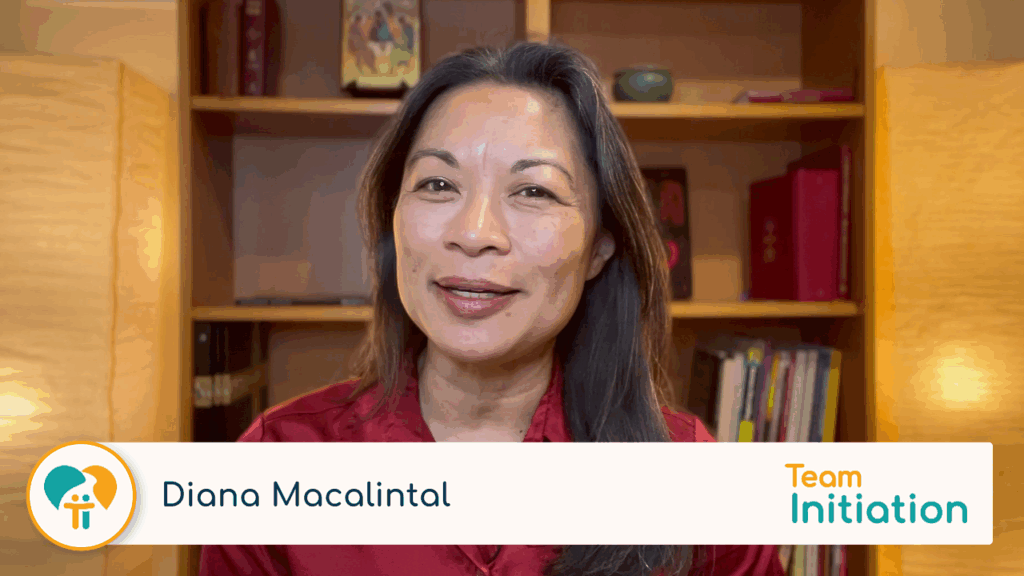
I ran across an article recently titled “Seven Differences Between Spirituality and Religion.” From what I can tell from a Google search, the author is a young man who has survived a difficult life. I don’t want to criticize whatever strategies he’s used to hang onto a healthy, peaceful life. But I do want to use his article to hold a mirror up to ourselves. He deeply misunderstands what “religion” is about, and that is a challenge to RCIA teams.
We need to ask ourselves what we are doing that contributes to such misunderstandings. And what are we doing to communicate a true story of our faith? Here are his seven points.
1. Religion makes you bow — spirituality sets you free
Religion does both. Bowing is a sign of reverence, respect, and putting the other first. The author obviously means bowing in a way that indicates subjugation, as though we were slaves. We have to be better at conveying the radical freedom from slavery that Jesus offers.
2. Religion shows you fear — spirituality shows you how to be brave
We know that Jesus puts an end to all fear and replaces it with a peace that passes understanding. But somehow we are not getting that message out there. Perhaps some of us grew up with an image of a fear-inducing God. The world certainly has that image. What are we doing to communicate Jesus’s promise of peace?
3. Religion tells you the truth — spirituality lets you discover it
This is a difficult point to challenge. Of course, Jesus is the truth, and it is our job to proclaim that truth. But humans are hard-wired to believe we are the truth. Or we know the truth. The church has certainly gotten things wrong in the past, and we will in the future. But on the whole, as a community, we get closer to the truth of Jesus than any one of us will on our own. How well are we acknowledging the imperfections of the church while at the same time proclaiming the truth of Jesus that is found within the church?
4. Religion separates from other religions — spirituality unites them
Over the course of history, we haven’t been very good at combatting this idea. In fact, we’ve done a lot to give it credence. But that is one of the imperfections of our past, not the goal of our future. Pope Francis recently said:
Many think differently, feel differently, seeking God or meeting God in different ways. In this crowd, in this range of religions, there is only one certainty that we have for all: we are all children of God…. We should not stop praying for and collaborating with those who think differently.
The pope is giving us an example. We have to hold fast to our belief in Christ without denigrating and separating from other religions.
We should not stop praying for and collaborating with those who think differently.
5. Religion makes you dependent — spirituality makes you independent
This one is 100% true, and I’m glad. Christianity is a community of brothers and sisters, all dependent upon one another. And as a body, we are dependent upon God. This is way better than being alone, isolated, and completely dependent upon myself. In the Western world however, “independence” has become a kind of secular religion. We have to inculturate ourselves into the lives of those who value independence and find gentle ways of sharing the greater value of community life.
6. Religion applies punishment — spirituality applies karma
I don’t really know what karma is. The author says it is the consequence of our actions. I don’t see how that is different from what the church teaches about sin and punishment. But I do see that the world thinks Christianity is focused on punishment. We have to get way better at getting the message of unconditional love and mercy out there.
7. Religion makes you follow another’s journey — spirituality lets you create your own
It is true that we invite others to follow the way of Christ, but no one makes followers follow. Each of us is on our own journey. The fact that we choose to follow the way of Christ and we are on that journey with others does not make the journey any less our own. The challenge here is not knowing the truth. It is communicating that truth to others in a way that is liberating and not oppressive.
Your turn
What are your thoughts? Do you have any strategies you can share that will help us better communicate the truth of our faith? How do we share our faith in ways that invite dialogue?


















Love your work. Keep inspiring me.
We have to open the door to knowledge of the true way of life by constant exposure of it. Through early catechisis, church bulletins, homilies, greetings, song, and other (quote- marketing techniques). We need to act a the Apostles did, with love and reverence.
This is a nice approachable article on the false dichotomy between being religious and being spiritual. It is true that much of this hinges on the focus that is placed on freedom and individuality. In the past, I’ve often approached this topic pointing out that there is “freedom FROM something” as well as “freedom to DO something.” Often individual freedom tends to focus on the first–to be free is to not be tied down. But the latter points to the integrity of commitment as well as the risks of believing in the absence of things seen.
It is worth pointing out that the word RELIGION comes from the word religare–which means to bind or to be bound to something. And I your #1 point above can be applied in many other cases because religion ties you to the concerns, obligations, responsibilities of and to others.
In any case, in the most charitable sense, this polarization of religion/spirituality is a bit of a immature, or not fully developed sense of religious devotion. If one were simply devout but spiritless I think they would be less than nourishing and bear little seeds and fruit. So too those who are somehow all spirit but without any ties of empathy and compassion–all Love of God with little love of neighbor–would have very little to point to within this earthly realm to manifest the presence of what is good, true, or beautiful, etc.
In the end, that is the great hallmark and mystery of the incarnation for Christianity. It isn’t about being religious vs spiritual. It is about entering into the great relationship of God’s love for humanity.
I have a problem with #6…..I am all for spreading the news about the Lord’s unconditional love and mercy…..but some, including priests, I think have strayed away from the punishment aspect too much. Sin still exits and so does hell, but the pendulum has swung too far to the left when we don’t talk about these anymore…..I do believe we should differentiate between loving the person and hating the behavior. It is not a free for all just because we are banking on the Lord’s unconditional love and mercy. There should be a balance.
THANK YOU FOR PRESENTING THIS TOPIC SO WELL. IT CALLS FOR. GREATER DISCOURSE AMONG ALL CATECHISTS.
DEACON RALPH COX
HARWICH,MA
This is a comprehensive article covering the topic very well. I would like to add my thoughts to #5 or perhaps this is an additional point. Religion or finding God within the institutional church involves community. In our society today people are seeking a place to belong. RCIA provides that place for a couple of years while people are introduced to Jesus and to the parish and, as Team RCIA challenges us, we need to bring our folks into the parish community so they have a broader sense of belonging. We all need community and the local parish can provide this in so many ways. Our faith is relational with God and with others.
Thanks so much for the resources that you provide so that we can more effectively be used to bring people into relationship with Jesus the Christ!